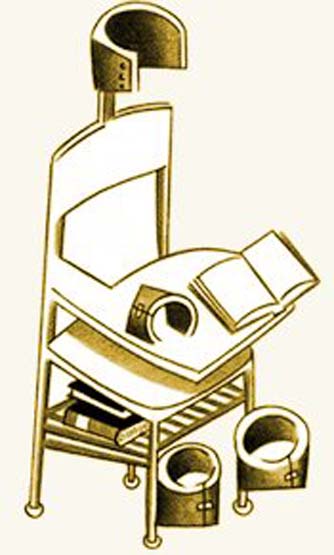
But what happens inside the classroom is hard to quantify.
This is particularly true of the major educational reform of this era, the Common Core State Standards. The project of the National Governors Association and Council of Chief State School Officers was designed to use research results to remake K-12 teaching. It recommended more lessons about the real world, more nonfiction reading and writing, and more unified math instruction.
How has this changed what is actually going on in the classroom? The Thomas B. Fordham Institute has given us answers with a survey of 1,237 teachers in fourth through 10th grades: "Reading and Writing Instruction in America's Schools."
The Common Core has had a bumpy history since it became a hot trend in 2010 with powerful support from the governors association. Conservative politicians said it interfered with local school practices and needs. Scholars and education writers (sometimes including me) said its guidelines were too dense and its policies wrongheaded. But many educators liked its change in emphasis.
After all the controversy, the new Fordham Institute report by David Griffith with Ann Duffett has some surprisingly good news. Teachers are making sure the material their students are reading is not too simple and boring. They are teaching vocabulary as it appears in the readings, not just word lists. They are asking students more questions that require evidence from the lesson being read.
But the authors also found weak spots that could doom the standards to the decline suffered by most top-down educational reforms.
Robert Pondiscio, a teacher who also writes for the Fordham Institute, has long cited two sentences from a key Common Core document as "the 57 most important words in education reform ever." Here they are: "By reading texts in history/social studies, science and other disciplines, students build a foundation of knowledge in these fields that will also give them the background to be better readers in all content areas. Students can only gain this foundation when the curriculum is intentionally and coherently structured to develop rich content knowledge within and across grades."
The worst news for Common Core advocates is that this is not happening nearly as much as had been expected. Fifty-six percent of English language arts teachers said "building students' general knowledge" is not getting enough attention. Forty-six percent said the materials provided to boost content do "a poor job." Thirty-two percent said the number of students gaining the necessary background knowledge has dropped.
The teachers also said they were slighting the "classic works of literature" the standards were supposed to protect in the move to more nonfiction. The teachers acknowledged giving students texts at their reading level, not the more challenging grade level as recommended by the Common Core.
Writing instruction - my least favorite part of the program - continues to stagnate. More teachers (36 percent) said ability to write "well-developed paragraphs or essays" had worsened than said it had improved (27 percent.)
The 2015 federal Every Student Succeeds Act has given states more power, which in this case is bad. Local politicians tend to dumb down standards so test scores aren't too low. Tom Loveless, a leading researcher on standards, has found that major top-down reforms often "have their strongest effects when first adopted." For many states, that was several years ago.
I suspect much of the program will fall out of fashion, as did the New Math, Whole Language and whatever was done when you were in school. Yet the Common Core is so complex that some of it may stick. Creative teachers can try their own approaches and see what works best for them and their students.
This is still a democracy. Schools will have to respond to what families are demanding in preparation for college and work. In my experience, what lasts longest, and produces the best schools, are ideas born in those little understood but sometimes exciting classrooms.
Previously:
• /05/14/18: Veteran policymaker says 80 percent of special-ed kids don't need that label


 Contact The Editor
Contact The Editor
 Articles By This Author
Articles By This Author